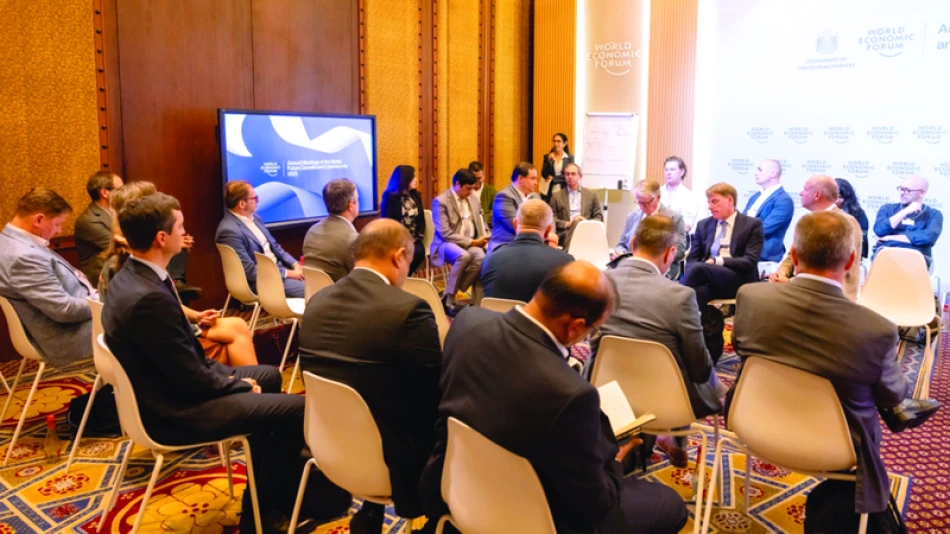
Comprehensive Discussions to Enhance Quality of Life and Social Cohesion
Global leaders and experts gathered in Dubai to map out the future of more inclusive and sustainable societies during the 2025 Global Future Councils annual meetings. The event, jointly organized by the UAE government and the World Economic Forum, brought together councils focused on experience economy, lifestyle, gender equality investment, workplace values, and human capital development to tackle how societies can build better futures for their citizens.
The councils held extensive discussions about developing comprehensive models that improve quality of life while supporting social cohesion. Members emphasized the need for innovation in lifestyle patterns and social care systems, along with promoting equality and empowerment across different groups in society.
A key theme emerged around integrating ethical and spiritual values into workplace environments and community cultures to create more collaborative and human-centered approaches. Participants stressed that human capital development through continuous education and training is essential to keep pace with rapid changes and achieve sustainable, inclusive growth.
Reinventing Consumer Experiences
The Experience Economy and Lifestyle Council examined the major shifts in retail, hospitality, and entertainment sectors over recent years, driven by rapid technological advancement. Council members highlighted the need to reinvent consumer experiences by developing advanced personalized shopping, travel, and entertainment through tools like artificial intelligence.
But here's the challenge: maintaining cultural identity and value in physical experiences while embracing digital innovation. The council explored ways to strengthen partnerships between government and private sectors to build flexible economic systems that support quality of life and adapt to global economic changes.
Financial Innovation for Gender Equality
The Gender Equality Investment Council focused on how financial innovation can close gaps in financial services, wealth, and investment opportunities. Members discussed adopting gender parity as a key indicator for measuring investment impact.
This approach could redirect resources toward projects that increase women's participation and achieve greater financial justice and sustainability at both national and global economic levels. The potential impact on capital allocation represents a significant shift in how investment success gets measured.
Values-Based Leadership
The Faith at Work Council addressed how value-based and spiritual frameworks can reduce disparities and limit political, social, and economic divisions in societies worldwide. The focus centered on building leadership visions grounded in shared values.
Council members examined the effects of incorporating ethical principles derived from beliefs into corporate governance policies and human resources practices. These approaches can shape more collaborative and humane work cultures that support wellbeing, social progress, and quality of life.
Transforming Education and Skills
The Human Capital Development Council tackled how emerging technologies are transforming education, skill acquisition, and competency assessment. These changes pose challenges to traditional systems and academic and professional accreditation pathways.
Participants emphasized building effective partnerships between educational institutions and both government and private sectors to develop talent. They called for adopting flexible lifelong learning models that align with the requirements of an advanced intelligence era.
The discussions highlight a growing recognition that traditional approaches to economic development, workplace culture, and education need fundamental updates to address current global challenges. The councils' work provides a framework for how societies can balance technological advancement with human values and inclusive growth.
Most Viewed News

 Sara Khaled
Sara Khaled






